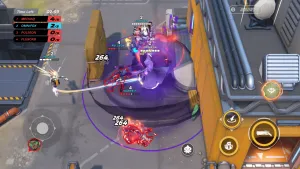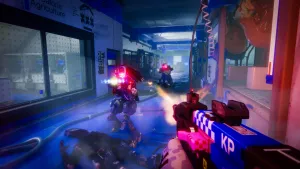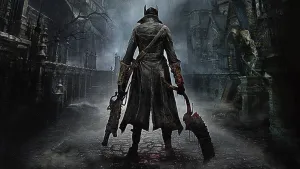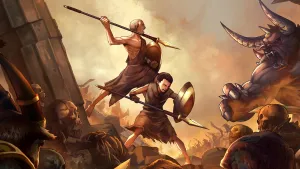How Modern-Day Difficulty Masters Create Challenging Games That Are Still Fun To Play

For most game designers, homing in on the right degree of difficulty is akin to discovering the Holy Grail. Make a game too easy, and players breeze through its forgettable challenges with little sense of accomplishment. Make it too difficult, and players may quit out of frustration or feel too intimidated to pick up the controller in the first place. Finding the right balance is an art form in its own right, and for most modern games, the perfect difficulty setting blends seamlessly into the background as players steadily and successfully fight their way to victory. Not every designer follows this playbook, however.
Over the years, a growing number of games have opted for the punishing difficulty old-school games used to dole out with impunity, and a particular segment of players have embraced these demanding titles with open arms. From the tortuous locales and towering bosses of the Dark Souls series to the deadly labyrinths of Super Meat Boy, we spoke with a number of modern-day difficulty masters to find out how they maintain the player's enjoyment while still plying them with sinister challenges.
This feature originally appeared in Game Informer issue #274, under the title "The Difficulty Of Difficulty."

Keeping Frustration At Bay
Continually getting bested by a particular challenge can be a frustrating and
game-ending experience. So how do developers prevent players from throwing
their controller at a wall? The most important factor for mitigating
frustration is fostering the sense that every success and failure is earned by
the player. "It's my job as a designer to promote fairness, to make sure that
the rules of a game are transmitted clearly," says XCOM 2 creative director
Jake Solomon. "...I mean fairness in the sense that when things happen, the
player understands why, and how those things fit into the overall rules."
Losing a beloved veteran soldier to a rampaging Muton Berserker in XCOM can be
devastating, but it's also the direct result of your own choices – where you
moved your characters, which enemies you targeted, etc. In other words, you may
get frustrated with yourself, but not the game.
"Mastering a set of skills is always fun," says XCOM 2 creative director Jake Solomon. "The process of learning is fun, and the process of applying your learning is even more fun. Everybody likes to feel clever, and with challenging games, your reward is really that sense of cleverness, that sense of accomplishment in the face of obstacles." Whether you're mulling over your next move in a turn-based strategy game, dodging sword strikes in an action RPG, or timing precise jumps in a 2D platformer, acquiring and perfecting new skills is always rewarding.
Diablo III lead designer Kevin Martens points to another vital component: player choice. "When a game gets difficult, there should be something that the player can learn or choose to do differently to overcome the difficulty," Martens says. Diablo III plies players with endless loot, weapons, and a variety of powerful abilities to overcome obstacles in the method of their choosing. If the player is still hitting a wall, they can also simply choose another activity such as Adventure mode or a tackling Greater Rift.
Darkest Dungeon provides a unique case study. Its roguelike nature and sheer amount of variance can lead to situations where the odds are severely stacked against the player. The solution? Give players a way out. "Without the ability to retreat, the player would feel at times that there is nothing they can do to overcome a bad deal of cards," says Darkest Dungeon design director Tyler Sigman. "It would be like forcing players to bet on a weak hand. We are every bit as interested in what you do when things are going poorly as when all is going great." The ability to retreat from fights and abandon quests doesn't just create an enticing risk/reward to mull over – it once again puts the onus on the player. If you push too hard and get your entire party killed by a ghoulish necromancer, their blood is on your hands, not the game's design.
Another important key to minimizing frustration is making sure the hard-won victories feel worth the effort. "I think the key as a developer when making challenging games is aligning your rewards with the player's moments of triumph," Solomon says. "Beat a particularly tough enemy? Have a huge rewarding kill sequence and earn a really fun new item. Solve a particularly tough puzzle? Have a great unlock animation or a satisfying reward." Oftentimes the sense of accomplishment when overcoming a difficult challenge is a reward in its own right – but throwing in some sparkly new loot on top of the victory never hurts.
Coming Up Next: How developers balance highly challenging games, and the importance of losing...

Finding The Right Balance
Just because a game is meant to be hard doesn't mean the designer can throw
difficulty balancing out the window. In fact, attaining the right degree of
challenge is even more important and harder to achieve than with less demanding
games. Once again, designers employ a variety of tactics to achieve the right
kind of difficulty.
When balancing Super Meat Boy, designer Edmund McMillen's approach was characteristically straightforward, but nonetheless impressive. "I just played it," McMillen says, "and if I could beat the levels and I wasn't frustrated, I would move on to the next one....So I was kind of the par, I guess; if I could do it without much frustration, then I knew it wasn't going to frustrate most gamers."
For many designers, their instincts are only the beginning of the balancing process. "I always start with my personal experience, and as soon as I can, I start playing the game and then realize how insane my initial guesses were," Solomon says. Once Firaxis hones the difficulty through repeated play, it turns to focus tests for additional feedback. "[Outside input] is always great at opening your eyes to problems you might have grown used to over the course of a project's development, or just didn't see with your developer blinders on."
The Diablo III team follows a similar path. "We play all of the classes on a regular basis to gut-check the difficulty," Martens says. "But a huge amount of the balance comes from both community feedback and game data. We get people's thoughts on the state of the balance, as well as run lots of reports to identify what builds are being played, what monsters are killing people, etc. Balance is both an art and a science."
Many developers are no longer waiting for launch to start collecting feedback from fans. "The biggest lesson we've learned is that large-scale public betas are integral to making a game of this level of complexity," Martens says. "In retrospect, we wish we had done that for the initial Diablo III launch. There is no substitute for thousands of players doing everything they can to dominate the monsters and challenges in their game to teach us what is most fun about those things."

The Importance Of Losing
Losing has become so antithetical to modern game design that most of the time
it's not even a tangible possibility; dying simply means getting kicked back to
the last checkpoint or save file and pretending your failure never happened.
While no one likes losing, for some games the possibility of defeat is just as
important as the possibility of winning.
"Success is sweeter when the player has skin in the game," Solomon says. "Because there are real stakes and a real 'price' for not playing well – losing the game, for example – victory carries a real joy." In addition to the possibility of losing the overarching campaign, individual missions in XCOM can be failed, and the deaths of your soldiers are permanent. These losses may seem harsh when they happen, but they help build up to a greater sense of achievement. "Succeeding in XCOM, or any game with a lose condition, feels authentic – or actually, it is authentic," Solomon says. "You are risking something, so you are actually gaining something when you win."
The potential – and sometimes all-out likelihood – to fail is also vital for setting Darkest Dungeon's ruthless tone. Like in XCOM, permadeath ensures your adventurers in Darkest Dungeon feel more personal. "[Permadeath] heightens tension by creating meaningful consequences for your decisions," Sigman says. "It also deepens the emergent narrative and emotional investment in the heroes themselves."
Both Darkest Dungeon and XCOM (when played in Iron Man mode) remove the ability to manually save your game, further forcing you to own your decisions. "The risk of death and loss gives more gravitas to every experience they have," Sigman says. "A resisted deathblow now becomes a truly heroic moment instead of just a determiner of whether you reload the battle." Normally players would gripe about such an "archaic" approach to saving progress, but for Darkest Dungeon and XCOM the method doesn't just work – fans consider it the "authentic" way to play.
The stakes are equally high in Dark Souls; every death threatens to rob the player of their souls, the currency used for purchasing weapons, life-saving armor and items, and leveling up your character. This sense of difficulty isn't just integral to the experience, it is the experience. "For me, difficulty is a tool to express the challenge in the game, and the overcoming of the challenge is what we want the player to experience," says director Hidetaka Miyazaki. "I want to have the game be worth something, and one of those elements is the satisfaction of overcoming the challenges." The added hardships makes winning all the more rewarding – if you win.

There Is No Silver Bullet
The save systems of Darkest Dungeon and XCOM underline an important – and
perhaps the only – universal truth we learned while talking to designers: Every
game is a unique and independent case. "There is no right answer to how to
design difficulty," Martens says. "Even across the Diablo games, different
approaches have been taken on each of the different games.... I think the game's
intentions and fun should define what difficulty approach is best."
Despite the shared desire to make challenging games, every designer we spoke with has walked a distinct path to reach their goal. Some are uncompromising in their approach, relying on their personal instincts and vision to shape the adventure. Others scour through reams of data and player feedback to strike the right balance. No single approach will satisfy everyone. Balancing a difficult game is even more grueling than playing it, but the rewards are equally satisfying.
For more on game difficulty, check out Benjamin Reeves' feature on why we like hard games.









